Demand for premium lines and healthy options means c-store owners must think beyond standard white sliced when it comes to bakery.
Our daily bread isn’t what it used to be. Where once bog- standard sliced white was the only way to go, today’s bakery consumers are a lot more demanding.
Zoe Taphouse, category director at Allied Bakeries, says bread is following the trend seen elsewhere in c-store aisles. “We’ve seen a big trend towards more premium products in various categories – the rise of craft beer and Fever Tree tonic water are just two examples – as consumers look to replicate out-of-home quality at home. Now it is bread’s turn.”
As a result, she says Allied Bakeries has seen sales of premium bread grow 8.2% year on year (Nielsen Homescan, value growth, 52 w/e 6 October 2018).
The trend towards premium will be most welcome given the overall category is seeing shrinking volumes. “Although fresh bread is an essential staple for millions of families, the UK bakery market is facing declining volumes,” Taphouse points out.
It’s a move that Navin Soni, owner of seven Thriftys stores in Merseyside, has noticed. “Across all of the stores, I have seen sales of standard breads decreasing massively,” he says. “However, niche products such as artisan loaves and gluten-free sell far quicker nowadays.”
Lantmännen Unibake UK marketing manager Kate Sykes agrees. “Gone are the days where plastic-wrapped white sliced loaf was king – consumers are demanding both quality and choice,” she says.
“They are passionate about what they eat and want a range of shapes, sizes, textures and tastes. From sourdough to ciabatta, everywhere they turn they are offered a new grain, seed or flavour.”
The trend has led Hovis to release two new higher-end lines. Head of insight at Hovis Sara Green explains: “The premium bread category has grown by 4.5% and is the area where Hovis believes there is the most growth potential. Consequently, we have released two new products – the Seeded Batch loaf and premium White Bloomer.”
Country Choice marketing manager Hannah Morter believes it is important for c-store owners to offer a range of bread that reflects the requirements of their shoppers, and cautions against filling shelves with artisan only.
“Within the convenience channel space is always an issue, so whereas supermarkets have the luxury of displaying numerous variations of every loaf, convenience stores must isolate the best sellers to ensure they are receiving the highest return on the space occupied.
“Despite the increases seen in sales of artisan breads the volumes can’t justify using them as a replacement for traditional loaves and rolls.”
And not all retailers feel the need to stock up on the premium options. Bay Bashir, owner of Belle Vue Convenience Store, Middlesbrough, feels that premium bread isn’t right for his customer base. “In the North East, trends are different to the South. We provide mostly cash and carry bread,” he says.
“While some people do ask about it, I haven’t seen enough of a demand to take steps towards introducing more of it. We’ve got a completely different demographic.”
Hovis adds sourdough and seeded lines
Hovis has introduced two new premium bread loaves in a bid to cater for growing consumer demand for sourdough and seeded variants.
The White Bloomer contains 4% wheat sourdough and is slowly fermented for 72 hours to create a depth of flavour, while the Seeded Batch provides a richer taste with bigger and crunchier seeds.
Hovis senior brand manager Hannah Vose said: “Our innovation team consistently creates products that delight our consumers and as a result we have seen strong value and unit performance.
“Our continued investment into product development – and the launch of our new Seeded Batch and White Bloomer loaves – will drive our competitive advantage within the market and capitalise on consumer demand.”
Both loaves are available in 800g and 400g sizes, rrps from £1.45.
However, Mary Byrne, Aryzta Food Solutions trade marketing manager, believes stocking lines such as Aryzta’s sourdough breads can tempt previous standard white-bread stalwarts to trade up.
She says: “While pre-packaged white bread is still eaten daily in the UK, there are opportunities for trading up, which we’ve seen with a number of brands moving towards ‘bread with bits’ and with the rise of sourdough varieties.”
For James Brundle, co-founder of Spar Eat17, a chain of four stores in London and Bishop’s Stortford, Hertfordshire, upmarket bakery goods give his stores a usp. He employs bakers to work overnight and supply his sites with 24-hour proved sourdough. “This is what we specialise in. This is key to making us stand out and makes it viable as we can supply four of our own sites,” he says.
“Sourdough has been increasing in popularity for the past few years and, done correctly, can make you the place to go.”
According to Byrne, the perceived health benefit that products such as sourdough can offer is a large reason for the drive in sales. “In both retail and foodservice, there’s now a move towards more premium products such as sourdough, as well as the use of seeds and ancient grains, to appeal to more health-conscious consumers,” she says.
“The growing consumer interest in where food comes from has opened up an opportunity for artisan breads to gain traction. Convenience is no longer enough, with consumers now also looking towards health and value when making purchasing decisions.”
Bay says the rise of healthy options is something all retailers will have to get on board with. “It helps us boost sales, as it is what people are looking for. The healthy bread craze will certainly grow further. People are after a better lifestyle, a low-carb intake, and healthy recipes. Times are changing day by day, and it doesn’t look to be slowing down.”
Taphouse says Hovis is seeing a range of segments in growth across ‘healthier bakery’, “including 50/50 bread that offers hidden whole grain, and seeded breads which consumers perceive as offering taste and health, sparking a shift away from wholemeal bread in particular”.
The rise in health-conscious consumers goes hand in hand with that of the vegan and gluten-free boom. Raj Chandegra, owner of six Londis stores in London, says veganism is huge and not to be ignored. “For a retailer to have a noticeable impact you must have a reasonable range of gluten-free or vegan products. People need to know you have more than a handful of products,” Raj says.
James Brundle agrees. “We have noticed a real increase in sales and demand for vegan or gluten-free bread and bakery goods in recent times, largely down to health reasons,“ he says.
Whether it’s vegan or not, consumers do demand freshness from their bread, and Louise Hammond, owner of a Mace forecourt in Halesworth, Suffolk, finds many of her customers will buy only freshly-made. “We stock a local bakery’s bread and do not opt to sell the more traditional prepacked sliced bread,” she explains.
“We find that bread buying is a morning activity as opposed to evening for our customers, which is down to a freshness perception. The earlier the customers come in, the fresher the bread,” she says.
Navin looks for “anything to give us the upper hand” when competing against the multiples. and so he too stocks locally-baked goods. “We use local bakers to supply all our stores rather than the likes of Warburtons and such. Anybody can sell branded bread so it gives us a unique selling point. It sets you apart from the likes of Tesco and Co-op, as they cannot provide this type of stuff,” he says.
Aryzta adds vegan line-up to meet demand
One in eight British consumers – or almost 13% of the population – is now vegetarian or vegan, with a further 21% identifying as ‘flexitarian’, according to Waitrose & Partners Food and Drink Report 2018-19.
This demand for meat-free and dairy-free has prompted Aryzta Food Solutions to create a range of vegan products.
The new lines include:
Vegan Sausage Roll (rrp £1.50/150g): a meat-free sausage with onion, flavoured with garden herbs, wrapped in a golden flaky puff pastry and finished with a light parsley topping.
Vegan Spicy Chickpea & Kale Pithivier (rrp £2/185g): a French-inspired savoury pie recipe with a Moroccan twist, with a chickpea, sweet potato and apricot filling and a fragrant blend of herbs and spices; finished off with a parsley topping.
Vegan Spicy Chickpea Roll (rrp £1.50/180g): a deliciously spicy blend of chickpeas, sweet potato, red peppers and tomato wrapped in a light puff pastry roll and sprinkled with paprika.
Vegan Saag Aloo Lattice Slice (rrp £1.75/170g): filled with potato and spinach, blended with aromatic herbs and spices to invoke the flavours of India, covered in a light and crisp puff pastry case.
Lantmännen Unibake’s Sykes says where bakery products are sited can contribute a lot to sales levels. “Placing freshly baked bread at the front of store can help increase sales, as customers are tempted by the smell as well as the visually enticing selection of bakery products,” she says.
“But placing baked goods at the rear means customers experience more of your store on their way to these essentials. They are therefore more likely to be tempted by impulse purchases or top-up items they hadn’t initially planned for, increasing overall spend.”
Navin makes sure to highlight his bakery goods to maximise sales. “In terms of merchandising, we update all the time. Over the summer, we advertised barbecues at the front of the store alongside barm cakes. The weather was crazy – we were selling barm cakes in serious volumes because of that merchandising,”
One element that sits above all others, though, when it comes to bakery is availability. Jeremy Gilboy, managing director at Carrs Foods, says: “Time-pressured consumers expect to be able to buy bread when they want it and in the format that is most convenient to them. In spite of bread being seen as an essential staple, 22% of adults surveyed admit to running out of it in a typical week, second only to milk (38%).”
So whether it’s sourdough or white sliced that are the breadwinners in your store, making sure bread is there to buy should not be overlooked.

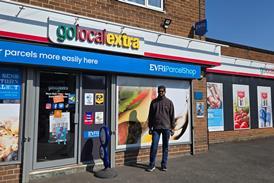



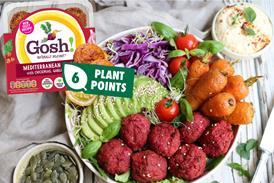
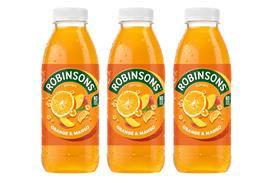
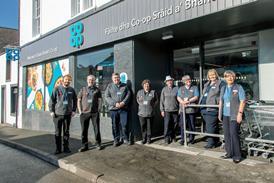

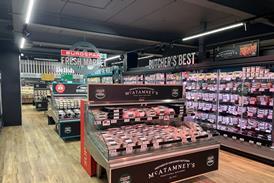

![WG-4003[58]](https://d2dyh47stel7w4.cloudfront.net/Pictures/274x183/4/5/1/353451_wg400358_6083.jpg)




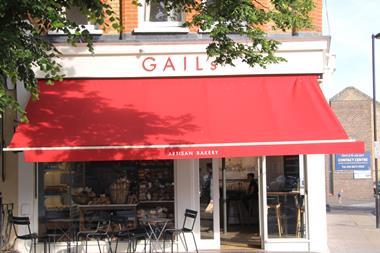

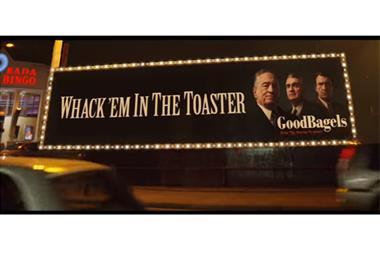
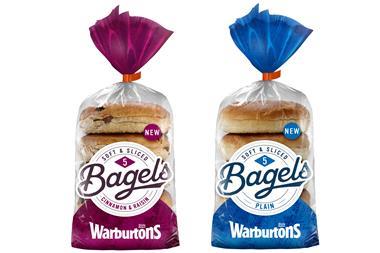
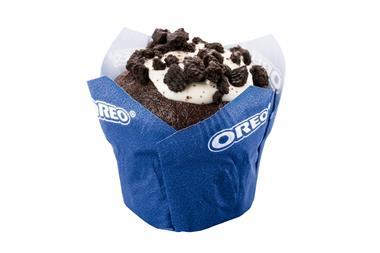
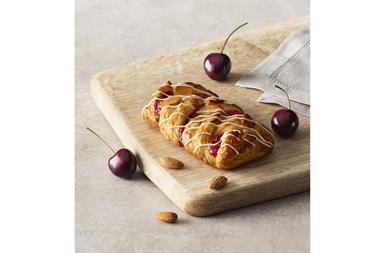





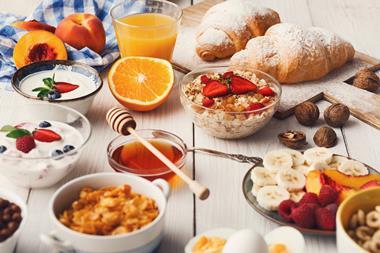
1 Readers' comment